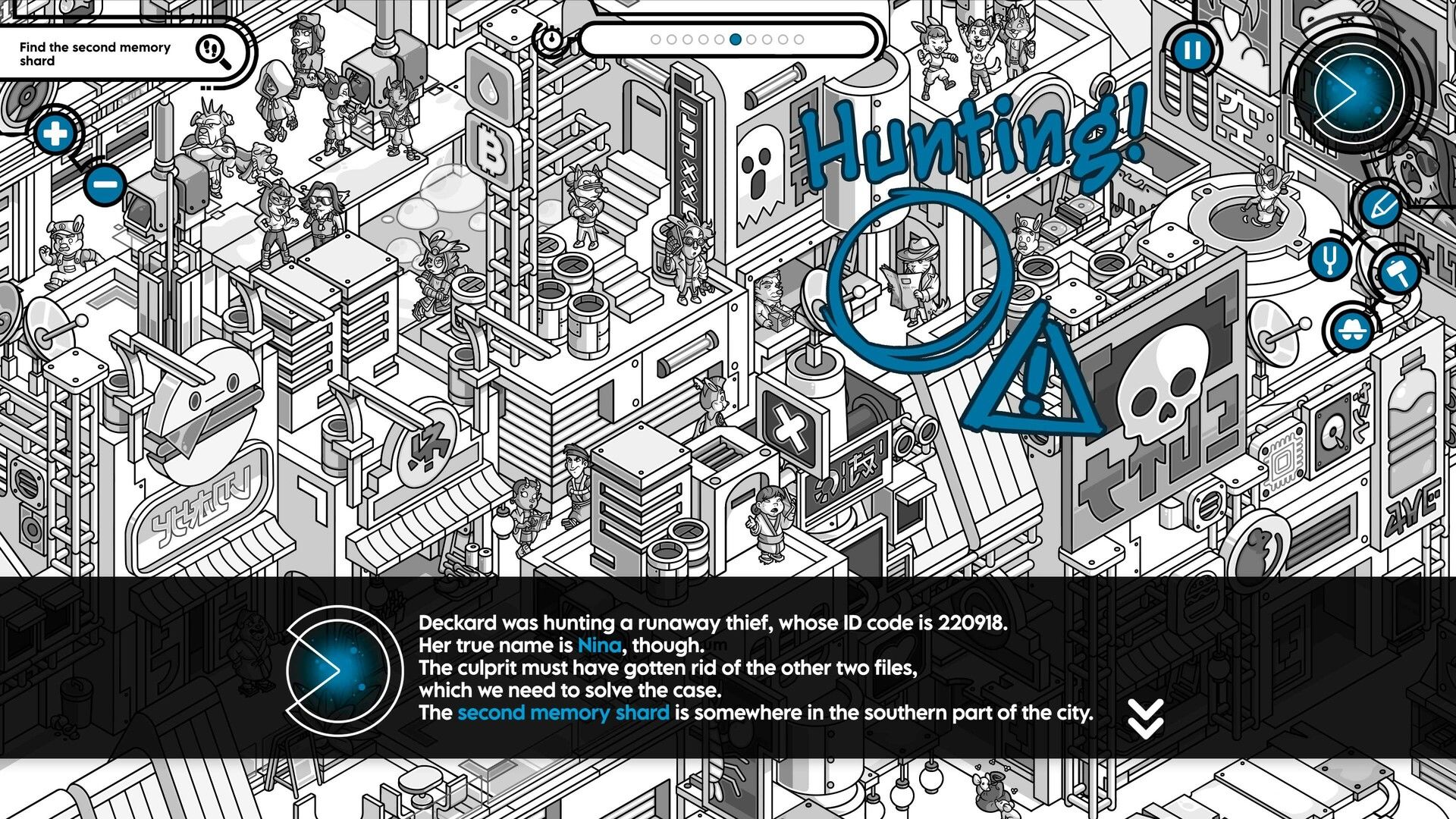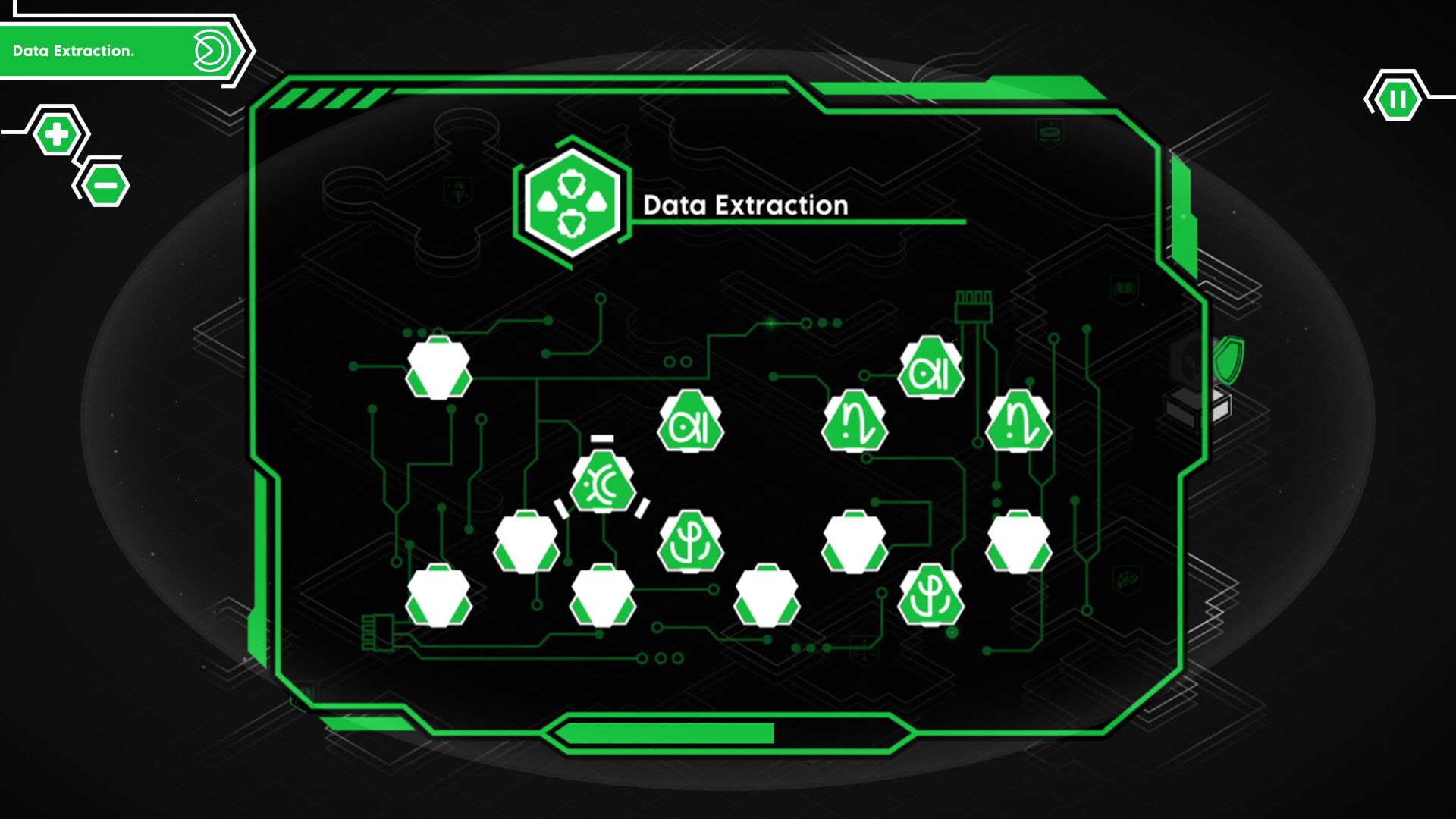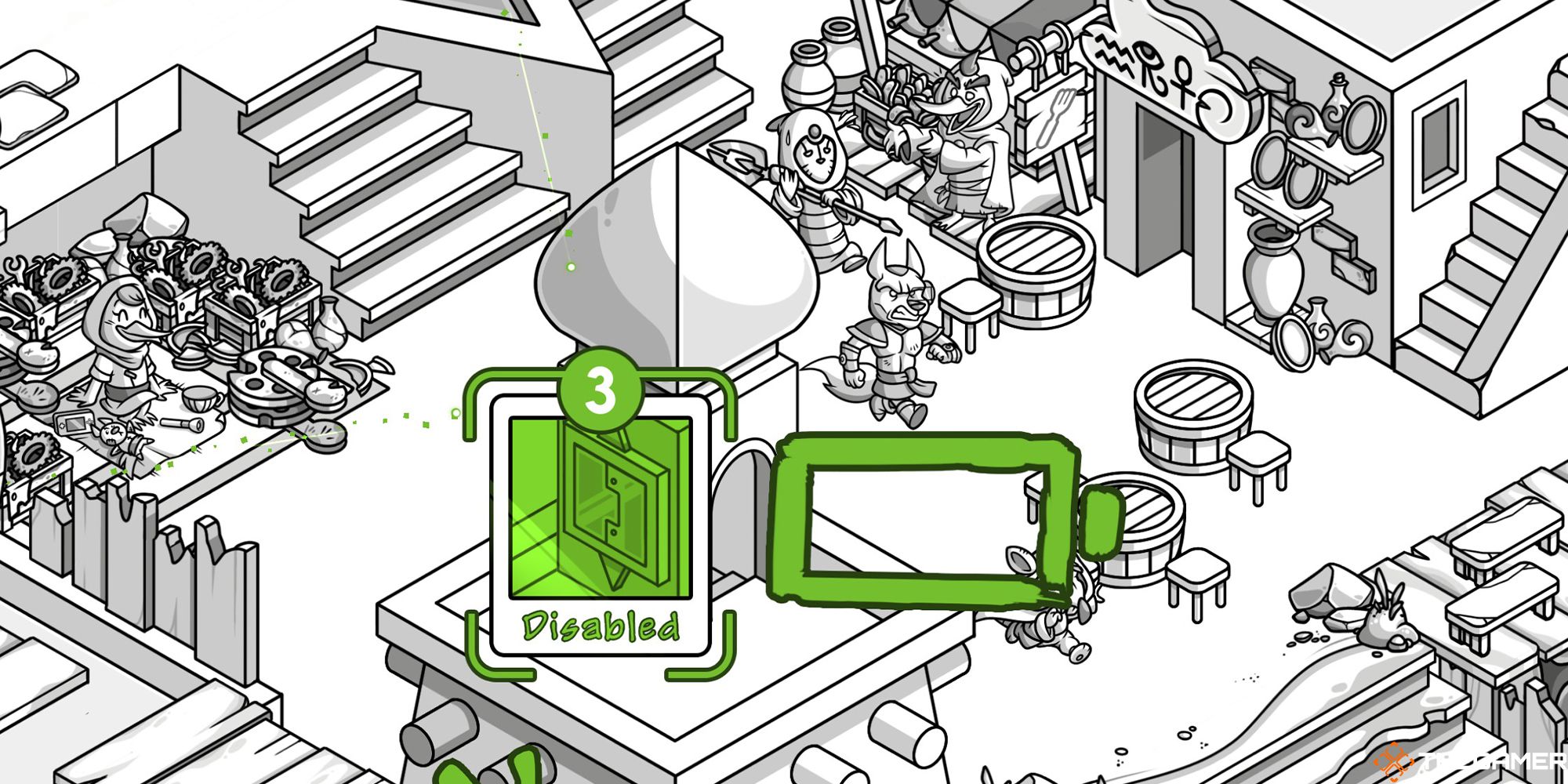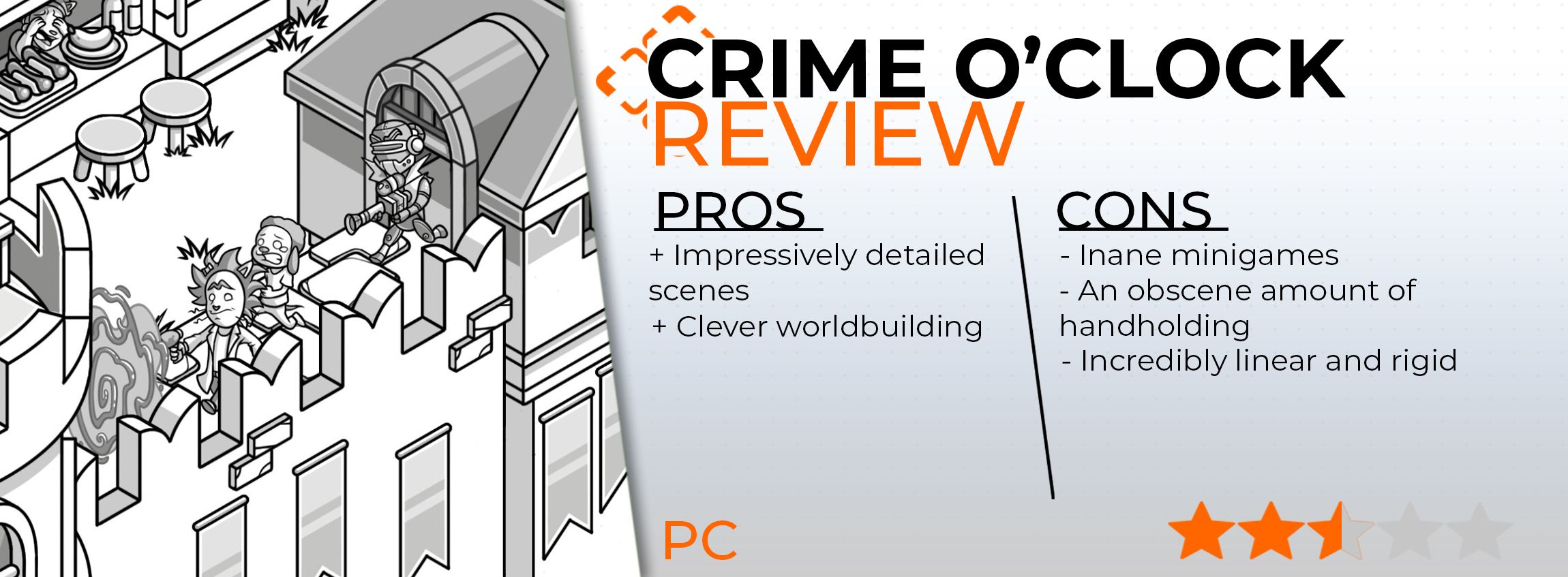We have decades of evidence to suggest that games that mess about with time are inherently fun. Prince of Persia: The Sands of Time, Singularity, Titanfall 2, Braid, the list goes on. If you want a way to make your game cooler, give it a time-twisting angle. That is, unless you’re Crime O’Clock.
Crime O’Clock has the potential to be something great, but plays it too safe. It squanders its core idea of dashing about time, solving crimes for a run-of-the-mill hidden object game that struggles to keep you hooked beyond the first few hours.
As an Agent tasked with protecting with ‘True Timeline’, you and your AI assistant must travel to different timezones and solve the paradoxical crimes that threaten to disintegrate causality as we know it. As you solve cases across different ages, you uncover a deeper conspiracy of opposing AIs hoping to change events for their own purposes.
Within those different ages, your AI has captured ten ‘ticks’ a few seconds apart. Using the ticks, and the various analytical abilities of your AI, you can follow suspects across the scene, or go back and change events just enough to prevent the crime without also hurting the timeline any further.
Unfortunately, for a game that presents itself as being about solving crimes across time, there’s no room for deduction or feeling like a real sleuth. Your AI controls absolutely everything, from which analytical tools you use to which tick you’re currently looking at. The freedom its premise hints at is stripped away for a much more rote hidden object game, with the only difference being characters can shift around the screen every once in a while.
This linearity often gets in the way of itself. As you hop across ticks in each maze, you can sometimes find perpetrators and clues before the AI wants you to, leading you to get stuck pixel-hunting for the thing it’s asking for despite being a step ahead in your mind. A particularly annoying example of this came in The Lost Age, where I found a thief disguised as a guard, but then needed to find a different character who looked similar, just for the AI to tell me that maybe the thief is in a disguise.
Occasionally, your AI will pull back from the action to do some light temporal hacking, such as tracing a signal or reprogramming automatons to arrest your suspect. Being yoinked out of a scene is jarring and frustrating, and you’re then ‘treated’ to some of the easiest, most brainless puzzles possible. There’s some real old-hat stuff here, like matching up the waves of two frequencies or having a quick game of Pairs.
It feels patronising. One minute you’re having to follow a character who’s moved slightly down the road from the last tick while your AI cheers you on like it’s the Watson to your Holmes, the next you’re having to carry out the difficult task of recreating a face the game helpfully plasters on the screen anyway.
When you look past the railroading and dodgy puzzle design, there is a solid hidden object game nestled away in Crime O’Clock. Despite being almost entirely black and white, each scene is a vibrant Where’s Wally-esque landscape full of zany characters and mischievous goings on. The highlight of the game is just poring over these scenes, picking out the dozens of gags, pop culture references, or even hints of future story beats spread throughout. Whether it’s the modern Information Age and its rock bands and bustling streets, the Steampunk splendors of the Steam Age, or the busy markets and arenas of the Lost Age, there’s lots to explore and take in.
The story itself is intriguing too, and does a good job of presenting an engaging wider narrative. Lots of how the world of Crime O’Clock works is left up to you to piece together, with timelines, Agents, AIs, and the collapse of various epochs all building into a much more involved setting than its doodles of Rick & and Morty or a particularly clumsy Prince of Persia initially present.
Crime O’Clock feels like wasted potential. As a hidden object game, it has the foundations of something decent, with its lively scenes and impressive worldbuilding offering up just enough pixel-clicking for fans of the genre to get a few cheap thrills out of it. But instead of leaning any further into its time-bending angle and becoming a truly impressive puzzler, it’s happy to sit and throw a few naff minigames at you, hoping it’s enough to distract from the severe lack of any actual substance.
2.5/5, a review code was provided by the publisher.






